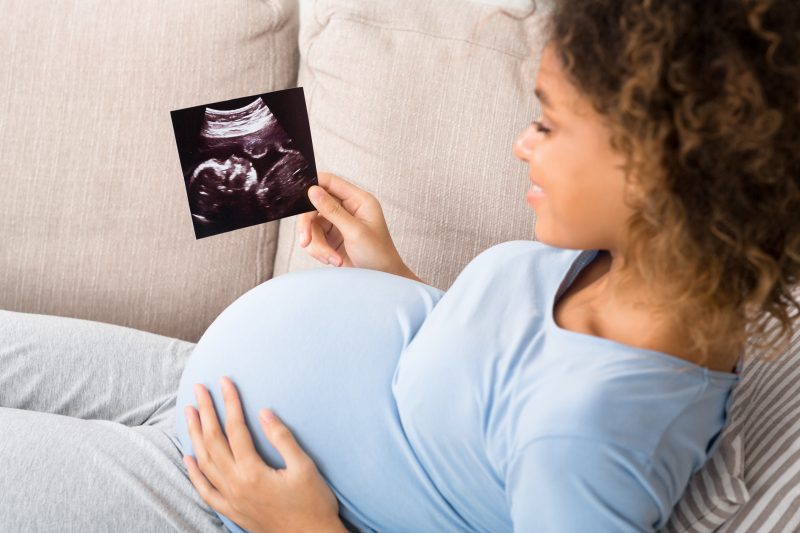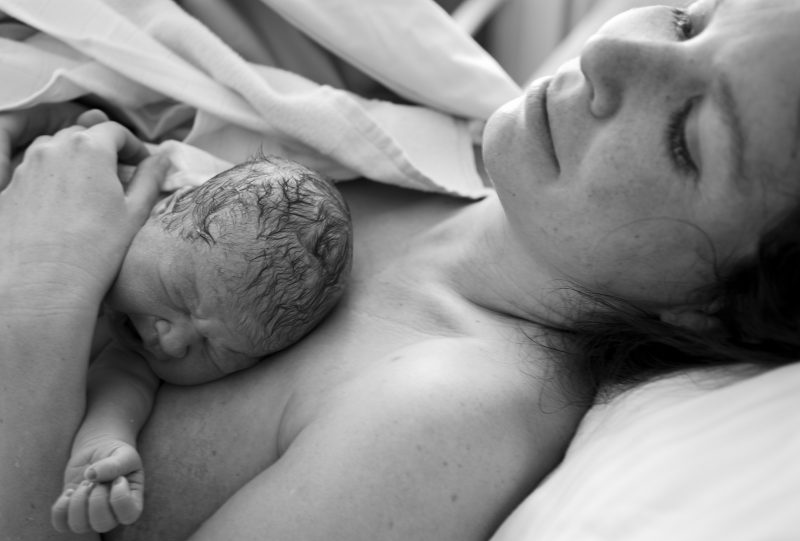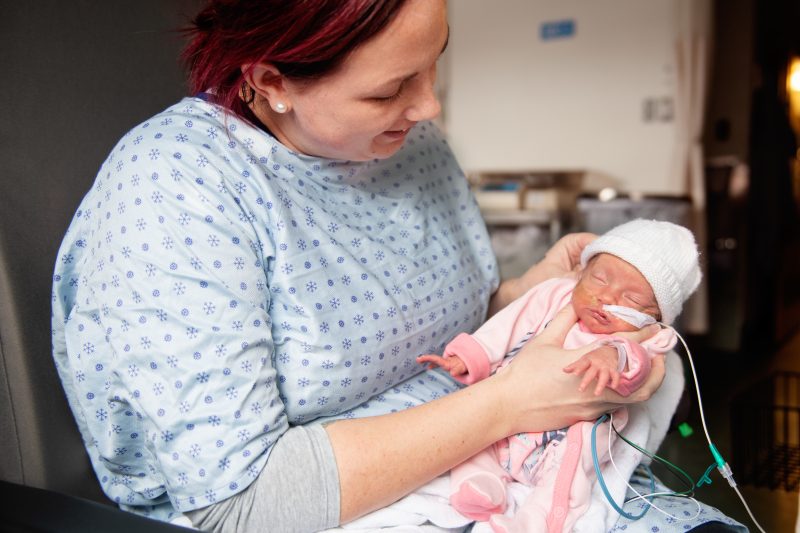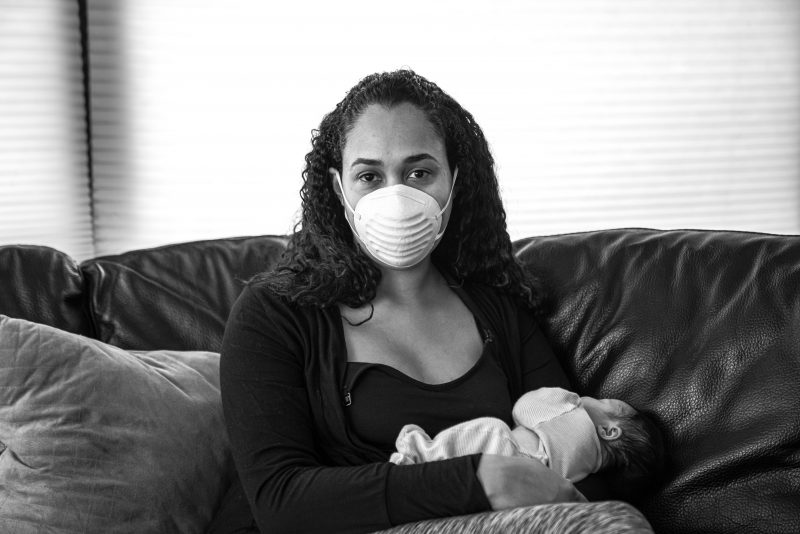
Depression and anxiety can happen during pregnancy or after birth. Established patients in Akron Children’s MFM or NICU can now get support through a new maternal mental health program.
They say a baby changes everything but, as any mom knows, those changes begin long before baby’s arrival. There are obvious physical changes, but in the process of going to check-ups and preparing for baby, there are also psychological and emotional changes mom experiences that are often less talked about or, worse yet, kept silent.
“Perinatal mental health concerns are being looked at more broadly now, but often we hear about maternal mental health after baby is born in the form of postpartum depression,” said Mallory Zehe, PsyD, pediatric psychologist at Akron Children’s. “What we know through research is maternal mental health is important at conception, throughout pregnancy, and in the postpartum period because it has a range of implications for mother and baby over time. When mom experiences a mental health concern, we can see effects on growth and development of baby.”
According to the World Health Organization, worldwide about 10 percent of pregnant women and 13 percent of women who have just given birth experience a mental health condition, with depression as the most recognized.
All women can develop perinatal mental health concerns during pregnancy and in the first year after delivery, but a number of social determinants such as socioeconomic status, race/ethnicity and a lack of social support can increase a woman’s risk. Another driver that keeps many women from seeking care is the fear of stigma.

Depression during and after pregnancy is common and treatable. Learn more about Akron Children’s maternal mental health program by contacting Akron Children’s Behavioral Health unit or call 330-543-5015.
“While society is getting better at recognizing and valuing the importance of mental health across the lifespan, there’s still stigma that exists. Because of the association with mental health concerns and a mother’s ability to care for her child, mothers may feel alone in their emotions and experiences, ashamed or suffer in silence,” said Dr. Zehe. “The most important thing I remind my patients is that mental health concerns related to pregnancy and birth commonly exist and are treatable. Seeking help does not demonstrate weakness or inability to care for your child; rather, the opposite. Optimizing your own mental health can improve baby’s development.”
Maternal mental health collaboration
About 2 years ago, Akron Children’s Maternal Fetal Medicine (MFM) group recognized a need for mental health support for mothers they were seeing. Since many women transition from MFM to the NICU once baby arrives, the group felt strongly that supporting mom’s mental health was a necessary step in the continuity of care for baby.
“At first, our MFM and psychology teams identified moms who were having a mental health need, including those with a significant mental health history, current high-risk pregnancy or expected fetal complications,” said Dr. Zehe. “We hoped that intervention prior to baby’s arrival could enhance mom’s quality of life, including the developing mother-infant relationship, and decrease symptoms of anxiety and depression during and after childbirth.”

Feelings of postpartum depression are more intense and last longer than those of “baby blues,” a term used to describe the worry, sadness, and tiredness many women experience after having a baby.
Response has been overwhelmingly positive, with more than 100 MFM moms participating in the program since it began. Another driver in the program’s success is due to collaboration with the Akron Children’s NICU team that also helps identify moms who could benefit from the service. In support, staff has been added to the team, including psychologist Dr. Laura Hlavaty, whose primary focus is caring for moms seen through MFM and those who come to Akron Children’s when their baby is in the NICU.

According to a recent analysis by Centers for Disease Control and Prevention (CDC), the rate of pregnant women with a depression diagnosis at delivery increased by seven times from 2000 to 2015. Additionally, recent CDC research shows that about 1 in 8 women experience symptoms of postpartum depression.
What to expect
At the initial visit, staff goes over an introduction of psychology services, conducts a mental health evaluation and provides recommendations/treatment planning. Mental health appointments are then coordinated with a patient’s MFM appointments, as part of her standard of care.
Treatment is focused on cognitive and behavioral aspects of mom’s functioning to help her identify, understand and alter thoughts and feelings that influence negative behaviors or emotions. A number of evidence-based interventions for adjustment, anxiety and depression are used to help moms.
“If a mom is suffering from depression, it can be difficult for her to take care of her own needs, let alone the needs of her baby,” said Dr. Zehe. “My job is to help mom support her own well-being which, in turn, helps her baby before and after delivery.”
Currently, Akron Children’s is the only pediatric hospital in the area to offer this type of maternal mental health service, which is also available via telehealth.

Dr. Mallory Zehe has worked diligently with MFM to initiate Akron Children’s maternal mental health program. She says it’s a privilege to help moms during such an extraordinary time in life.
“I feel it’s a real privilege to be able to help moms who are struggling during this extraordinary time in their life,” said Dr. Zehe. “Beyond our internal collaboration to ensure continuity of care from MFM to the NICU, we have relationships with obstetricians and other local resources to help mom find services to support her mental health once she’s at home with baby.
The Akron Children’s psychology, MFM and NICU collaboration for maternal mental health is currently available to Akron Children’s MFM patients and moms who have babies in the Akron Children’s NICU. Established patients can ask their MFM or NICU providers for more about this service. For all others, contact Akron Children’s Behavioral Health unit at 330-543-5015 for more information.










